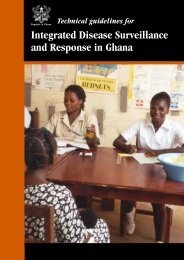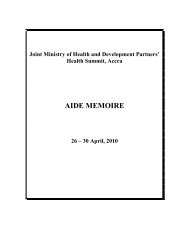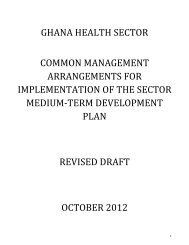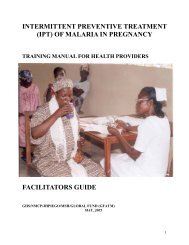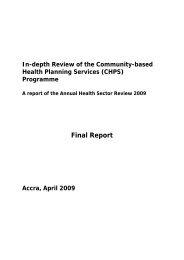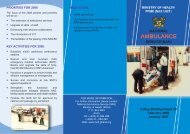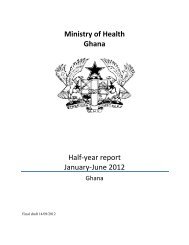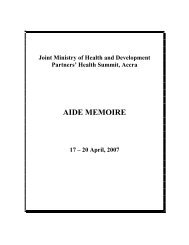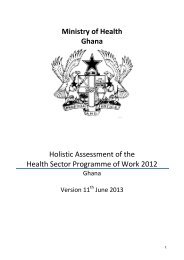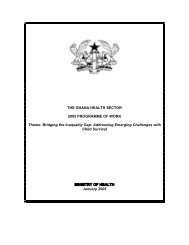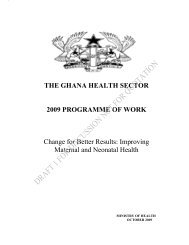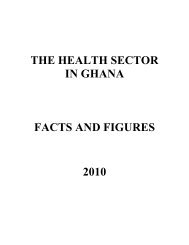Anti-Malaria Drug Policy - Ghana Health Service
Anti-Malaria Drug Policy - Ghana Health Service
Anti-Malaria Drug Policy - Ghana Health Service
You also want an ePaper? Increase the reach of your titles
YUMPU automatically turns print PDFs into web optimized ePapers that Google loves.
ANTI-MALARIA DRUG POLICY FOR GHANA<br />
cases below 50% (fig 2 & 3). These results prompted the<br />
search for alternative treatment for uncomplicated malaria.<br />
A comparative study conducted subsequent to the<br />
chloroquine efficacy tests showed that the efficacy of<br />
Artemether - Lumefantrine and Artesunate +Amodiaquine<br />
were similar (fig 3).<br />
A task force was also formed to review the situation and the<br />
available data on malaria including the malaria morbidity<br />
and mortality trends, quality of anti-malaria drugs on the<br />
market, socio-economic aspects of malaria, cost<br />
effectiveness of proposed new treatment and the problem<br />
of malaria in pregnancy. After several deliberations, the<br />
task force recommended the use of Artesunate -<br />
Amodiaquine combination for the treatment of<br />
uncomplicated malaria.<br />
Thus in 2004, <strong>Ghana</strong> changed its anti-malaria drug policy<br />
selecting Artesunate-Amodiaquine combination as the first<br />
line drug for the management of uncomplicated malaria.<br />
The introduction was set for 1st January, 2005 but roll out<br />
was later in that year. Systems were put in place to monitor<br />
the efficacy, quality, adverse drug reaction as well as G6PD<br />
status of pregnant women (with respect to the adoption of<br />
Sulphadoxine - Pyrimethamine for Intermittent Preventive<br />
Treatment {IPT}).<br />
MINISTRY OF HEALTH<br />
5



